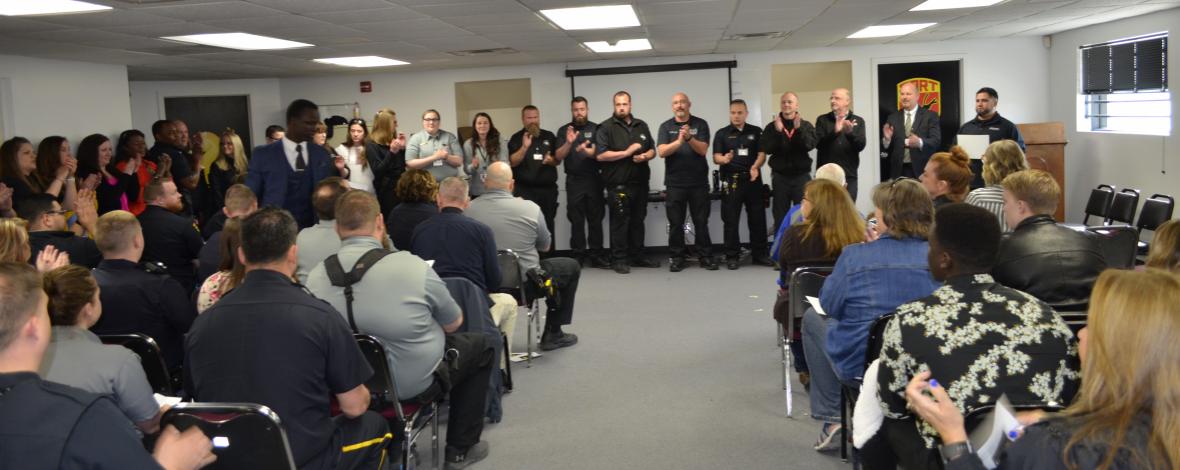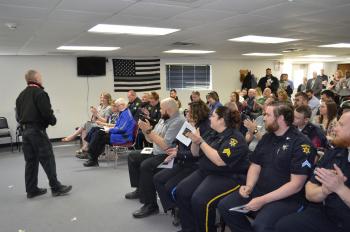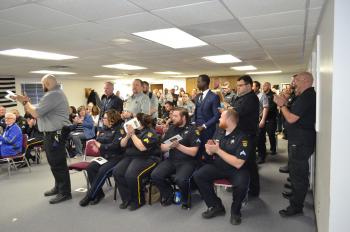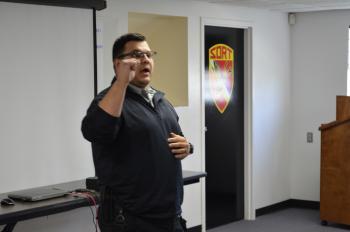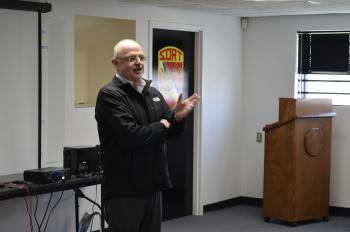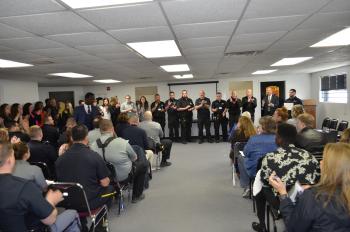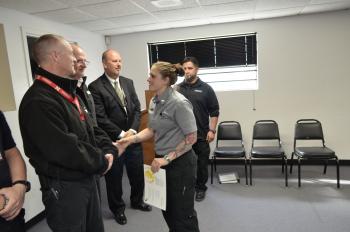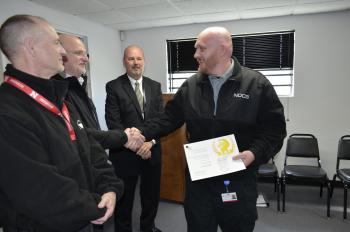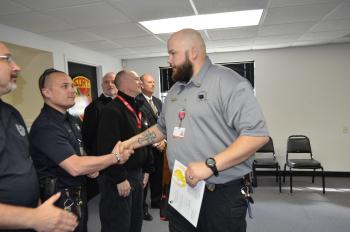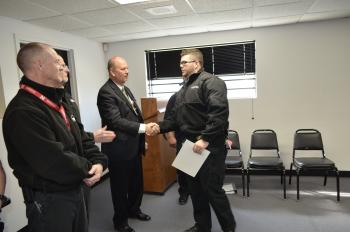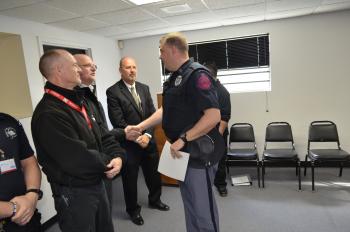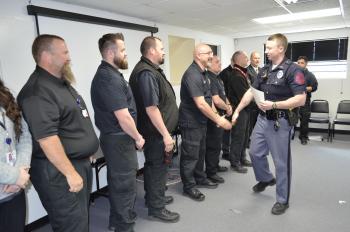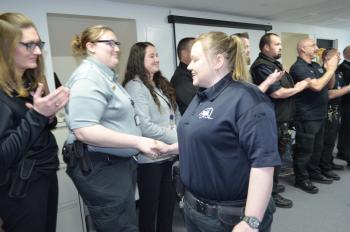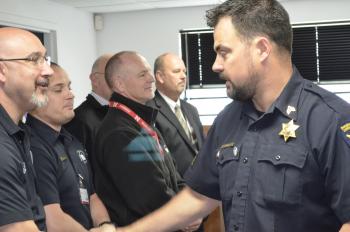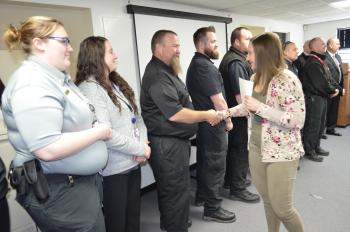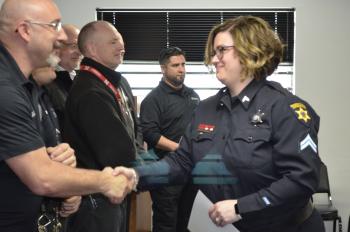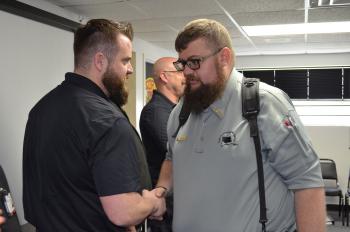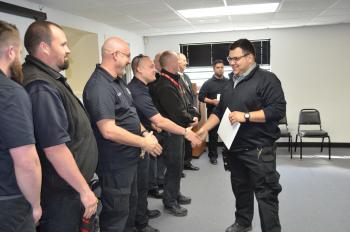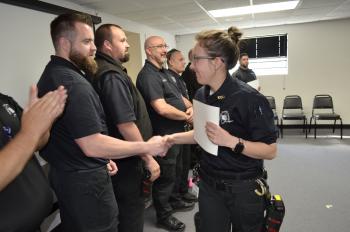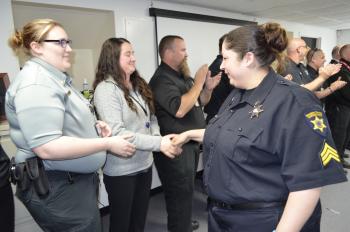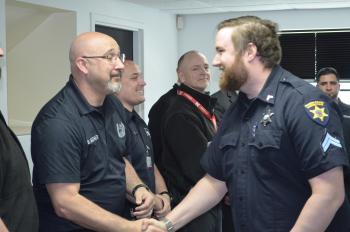NDCS Graduates Largest Crisis Negotiating Training Team in History
NDCS Graduates Largest Crisis Negotiating Training Team in History
Crisis negotiation can be emotional, time sensitive and stressful. It’s a skill that takes patience, empathy and fast-thinking. After nine days of intense training, the Nebraska Department of Correctional Services (NDCS) Crisis Negotiating Team (CNT) graduated 15 NDCS corrections officers, five Nebraska State Patrol troopers and five Douglas County Corrections officers in a ceremony at the Nebraska State Penitentiary (NSP) in April, 2019.
“There was lots of laughter, lots of anxiety and lots of crying,” said Nebraska State Penitentiary Acting Lieutenant Matthew Partida. “In the training, they push you to your emotional limits so you can figure out how you truly handle crisis. The team then unites and moves forward as one, together.”
CNT’s mission is to save lives. This elite team works to deescalate crisis situations involving suicide, barricade and hostage-type scenarios. The training is offered once a year, every April. On the first day of training, the members walk in on an intense mock crisis negotiation. From there, the training focuses on role-playing, scenarios and classroom work. Each individual is tested on how they handle a crisis on their own and then how the group works as a team during a full-scale crisis exercise.
“I was excited to work with NDCS and other agencies for this training,” said Joshua Thurber, corporal for Douglas County Corrections. “We received feedback from law enforcement professionals at all three agencies involved in this training. That really benefited the entire group.”
The 25 CNT graduates make up the biggest training class in NDCS history.
“We’ve really been building up the program over the years,” said NDCS Crisis Negotiating Team Coordinator Rob Treptow. “This is the biggest class we’ve ever accepted. We’re happy to assist in training the Nebraska State Patrol and Douglas County Corrections teammates.”
Other skills developed in the training include to maintain a good rapport with the individual or group you’re working with, develop open lines of communication, show empathy and keep calm during stressful situations.
Everybody agrees this training develops skills to apply professionally and personally,” said Partida. “I’ve been with Corrections for five years now. Our staff save lives every day. This training goes deeper.
The next CNT training will be held in April of 2020. If interested in applying, NDCS teammates can speak with their facility wardens.

